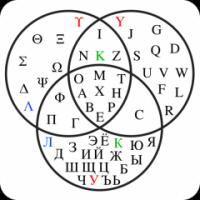Messaggi: 39
Lingua: English
Chainy (Mostra il profilo) 21 luglio 2013 13:19:51
erinja:We just have a large coffee table (box, wardrobe, booth, TV stand, cabinet) show up in the room, and before we know what it is, we are calling it a ...[box, wardrobe, booth, cabinet, TV stand, coffee table].In the story, this big time-machine thing must look like some real item of furniture. So which item of furniture? If it looks like a wardrobe, then call it that. If you prefer the word 'cabinet', then very good. I don't think this would be too disturbing for speakers of British English, as 'cabinet' can refer to big items of furniture like that silver thing you link to (Filing cabinet etc...).
However, I don't think that it's absolutely necessary to translate 'ŝranko' in all instances with the same word.
Chainy (Mostra il profilo) 21 luglio 2013 13:35:50
erinja:It is, in fact, a ŝranko even if it is also a time machine. It isn't a wardrobe if it is a time machine, it is simply a box that has the form factor of a wardrobe.I know what you're getting at here, but I think you're being far too analytical and fussy about the semantics. Ok, so even if we know that something is a time machine, we can still say that it's a ŝranko as this word has a more general meaning than 'wardrobe'. But, if the time machine looked like a wardrobe at first sight, then it will presumably continue to appear as such even when we realise that it is indeed a time machine.
So in other words, you could say without a problem that a ŝranko appears in a room because this is what the time machine actually is, but you couldn't say that a wardrobe appears in a room, because it isn't a wardrobe, it only has the vague shape of one.
Again, regarding your suggested use of just one word to translate all instances of ŝranko. As I said, I don't think this is necessary - in any case, it might still be confusing to the reader that at first 'ŝranko' is being used to describe a whole item (the time machine in the guise of some item of furniture), and then later it is used to describe only a part of an item of furniture (the storage compartment of the table). This is the fundamental reason for any possible misunderstanding, not the fact that various English words can be used to translate 'ŝranko'.
Chainy (Mostra il profilo) 21 luglio 2013 14:05:59
pdenisowski:To me a "ŝranko" is something that could (perhaps with difficulty or after dismounting it) be moved from place to place, not a cavity inside another object.Good point. I wonder if it is indeed ok to use 'ŝranko' to refer to a storage compartment within an item of furniture? Both ReVo and PIV only mention examples where it is a whole item of furniture in itself.
matrix (Mostra il profilo) 22 luglio 2013 02:20:33
Chainy:Indeed, ŝranko is only a piece of furniture — not a part of a piece of furniture. So, ŝranko may not be used in this meaning, whereas fako could be instead.pdenisowski:To me a "ŝranko" is something that could (perhaps with difficulty or after dismounting it) be moved from place to place, not a cavity inside another object.Good point. I wonder if it is indeed ok to use 'ŝranko' to refer to a storage compartment within an item of furniture? Both ReVo and PIV only mention examples where it is a whole item of furniture in itself.
In PIV fako 1.: “Aparta dividaĵo de kesto, tirkesto ks, difinita por enteni aĵojn, kiujn oni ne volas intermiksi: fako de skribotablo, de ŝranko; fako por respondotaj korespondaĵoj; diversaj fakoj por la iloj de meblofaristo.”
erinja:The Esperanto says, open the door of a ŝranko in the table to pull out foodI do think that fako would be the right word in this particular case.
kefga_x (Mostra il profilo) 22 luglio 2013 03:46:08
erinja (Mostra il profilo) 22 luglio 2013 10:40:16
You could call it a dispenser except that we are referring to the form factor of it (ŝranko, some kind of a box with a door) rather than to the function.
Chainy (Mostra il profilo) 22 luglio 2013 13:59:29
JDnDorks (Mostra il profilo) 22 luglio 2013 21:54:04
erinja:Except for the small fact that it's not really a storage compartment, because the food is delivered there somehow. It isn't just kept there forever and ever.How about just "compartment"? It brings to mind, for me at least, a car's "glove compartment", which is a hole in the dash with a door on it.
You could call it a dispenser except that we are referring to the form factor of it (ŝranko, some kind of a box with a door) rather than to the function.
I also want to say "hatch", which might not be the actual box, but it's what you'd actually interact with, putting things in and taking them out of the hatch.
Kristal (Mostra il profilo) 23 luglio 2013 01:56:32





